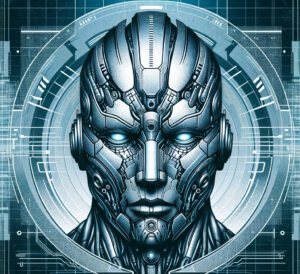Startup Completes First Fully Robotic Dental Surgery
In a significant medical breakthrough, a Boston-based startup, Perceptive, has completed the world’s first fully robotic dental surgery. The surgery was performed using advanced robotics combined with AI to carry out complex dental procedures, such as placing crowns, without human intervention. This technology has the potential to transform the dental industry, making procedures faster, more acc…
The Role of Robotics in Dental Surgery
The fully robotic dental system developed by Perceptive uses 3D imaging, AI-driven diagnostics, and robotic precision to perform dental procedures that would typically require multiple visits. Using volumetric data, the system can generate detailed maps of the patient’s teeth and oral structure. By using this data, the robot can execute procedures with extreme accuracy, reducing the need for tr…
Challenges and Solutions in Robotic Dentistry
Robotic dental surgery isn’t without challenges. Real-time decision-making in unpredictable scenarios is critical. Perceptive’s solution involved equipping the robotic system with advanced sensors that provide real-time feedback during procedures. This, combined with optical coherence tomography (OCT) scans, ensures that every movement is calculated and performed w…
The Future of Robotic Dental Procedures
This breakthrough opens the door for wider adoption of robotic systems in dental clinics. In the near future, robotic assistants could perform routine dental tasks, from cleanings to more complex surgeries, all while allowing dentists to focus on diagnosis and patient care. Robotic systems could help dental clinics increase their efficiency, treating more patients in less time and potentially reducing the cost of care.
Why This Matters
The implications of this technology go beyond speed and precision. Automating dental procedures could democratize access to high-quality dental care, making it more affordable and accessible to a broader population. Moreover, the precision of robotic surgery reduces the need for follow-up visits, meaning less time spent in the dentist’s chair for patients.
Potential Implications for Dentists and Patients
While there are concerns that robotic systems may replace human dentists, most experts agree that robots are more likely to complement dentists. Dentists would focus on patient interaction and diagnosis while robots handle the technical tasks, leading to safer and more efficient procedures. However, the success of fully robotic procedures like this raises questions about the future role of human intervention in dental care.
Conclusion: A New Era in Dental Care
The completion of the first fully robotic dental surgery marks a monumental step forward in dental technology. As more clinics adopt this technology, the future of dentistry may shift toward greater automation, offering patients faster, more precise, and more affordable care. This innovation promises to reshape the way dental procedures are performed globally.
